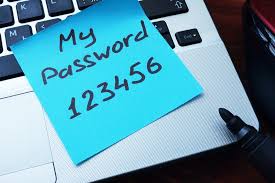Date: Friday 1 Sep 2020
Speaker: Olly Denhard
Business: IT Trouble Free
Topic: Password protection
Did you know that 81% of data breaches are due to poor passwords?
The most common passwords are not always that sophisticated according to research undertaken by the National Cyber Security Centre (NCSC):
- 123456 [23.2m victim accounts worldwide]
- 123456789 [7.7m – cunningly adding 3 numbers only makes this the 2nd most commonly hacked password!]
- qwerty [3.8m – so letters aren’t that much safer than numbers…]
- password [3.6m – ah the old classic – all lower case mind you!]
- 1111111 [3.1m – cunning…but not quite cunning enough]
Interestingly, the NCSC also published the 5 most common passwords involving premier league football team name (‘liverpool’ champions again with 0.28m), musicians (‘blink182′ 0.29m – never heard of ’em) and fictional characters (‘superman’ 0.33m easily defeated ‘batman’ 0.2m in this particular face-off).
Practise good password hygiene
“Recognising the passwords that are most likely to result in a successful account takeover is an important first step in helping people create a more secure online presence.”
Troy Hunt, international web security expert
- Identify whether your password is weak: Troy Hunt’s list – Have I Been Pwned – can be used to check breached usernames and passwords.
- Create a strong password: the NSCS recommends three random words.
- Store passwords securely: this means not on a post-it note, but using professional software such as Password manager (as recommended by IT Trouble Free – this will only offer to fill in passwords for accredited sites) or other reputable programmes such as LastPass.
“Using hard-to-guess passwords is a strong first step and we recommend combining three random but memorable words. Be creative and use words memorable to you, so people can’t guess your password.”
Dr Ian Levy, NCSC Technical Director
Conclusion
The NSCS has published a paper on UK Cyber Security [see below] which is well worth a read if you’d like to educate yourself further about password protection.
Alternatively, call in the experts at IT Trouble Free and let them take the worry off your hands!
